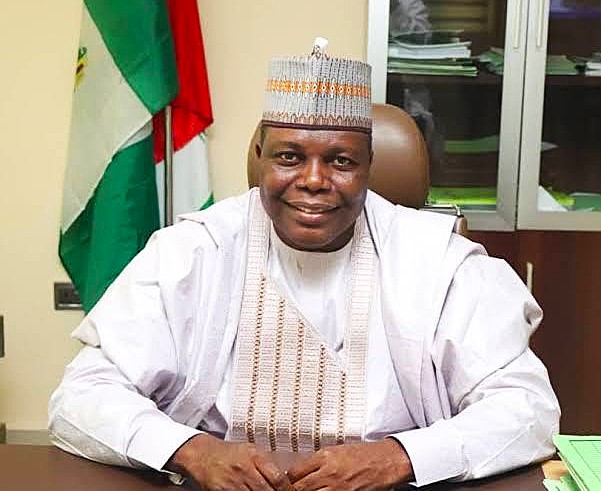Can you give us an idea of what you intend to achieve in your second term in office?
In the last four years, I have tried to make the agency a solid bedrock for the development of our nation by initiating many reforms to make the agency the champion of economic growth. Now that the consolidation and rebranding are over, our focus is to make research all-encompassing, especially scientific research.
In all aspects of life, biotechnology plays a key role that is why we have four technical departments. We have agriculture biotechnology department, environmental biotechnology department, industrial biotechnology department and medical biotechnology department.
In the area of agriculture, we have collaborated with local and international organisations and brought out pod borer-resistant cowpea. We brought about insect and drought resistant TELA maize and these are changing the narrative where science and technology is being used to improve agriculture to mitigate problems that are bedeviling crops especially climate change.
We are trying to bring herbicide-tolerant soya beans to help Nigerian farmers produce enough soya beans to feed the international market for foreign exchange, industrial development and job creation. You will come back here for the launch of herbicide tolerant soya beans soon.
In the medical field, what is going to be my greatest dream is to achieve in a few years a vaccine technology, which we have started working on despite the challenges. We want to engage Nigerians in the Diaspora and those at home to have a summit where stakeholders will define a blueprint for vaccine technology using the expertise, skill and resources of all stakeholders to transform this sector.
Nigeria of over 200 million people cannot wait for other people to be importing vaccines to us while we have the capacity to develop these vaccines.
Apart from collaborating with the Nigerians in the Diaspora, there are international treaties that Nigeria entered into such as the Convention on Biodiversity in 1992 and the 2002 Cartagena Protocol. How can you leverage all these?
The Cartagena Protocol is what we are keying into in terms of GMO products and that is what we are working to achieve because the Federal Government signed it. We have the National Center for Genetic Engineering and Biotechnology in Ibadan that is championing the biodiversity aspect.
What we are trying to do with Nigerians in the Diaspora is to identify things that are lacking that will make this project prosper. We are building brand new laboratories that are commensurate with this vision, commensurate with all the research that we have made and the equipment that will be brought in.
We are going to work with Nigerians in the Diaspora to tap from their experience, expertise, wealth of connection and resources in terms of laboratory equipment to move the country forward. We will work with the Nigerians in the Diaspora Commission to use the people in the Diaspora to train Nigerians and also conduct research.
The TELA Maize has been approved for commercialization but how many Nigerian farmers have keyed into it for mass production? Has the TELA maize found an international market and the needed foreign exchange? And how do you respond to skeptics of the GMO Maize who said it is a risky technology?
Let me start with the foreign exchange, how much do we spend in filling the deficit of maize that we produce in the country? We use our money to buy either in Argentina, Brazil or the United States and those countries use GMOs. This means that when we produce here, we are going to stop buying from outside and we have not even fulfilled the requirement that the country needs. The moment we fulfill the requirement using what we produce then we start exporting.
The People against the GMO maize are doing so because of their business interests, they want to continue to import maize into the country. Some of them import chemicals, so it is a market for them and an advantage to them if we don’t produce in Nigeria. It is also a blow to them if we produce in the country. We don’t have a problem if they buy from Nigeria and export but the problem is buying from outside the country and bringing to Nigeria. This will kill industry, kill employment and affect the currency. They are sponsored but they don’t have empirical validity because they have not conducted any research that counters what has been done about the benefits of the GMO products.





